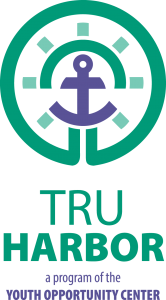Severe Risk; Private Secure Unit; Females
Target Population: Ages 13-18
Staff Ratio: 1:3
- Conduct disorder
- Substance use disorders
- Disruptive behavior disorders
- Oppositional defiant disorders
- Trauma related disorders
- Sexually maladaptive youth
- Aggressive tendencies
- Runaway/truancy tendencies
- History of criminal charges
- History of gang involvement
- Problems related to primary support group
- Previous failed placements
The GEMS program is a secure residential treatment program devoted to providing services to female youth who are dealing with significant trauma and exhibiting criminal and behavioral issues. These youths have typically experienced failed previous placements or are not safe in the community, staff secure residential facility, or in less restrictive environments.
The GEMS program offers a highly structured therapeutic environment with increased security measures. Specially trained treatment staff focus on the underlying trauma and other adverse childhood events while working with the youth to build self-respect, improve self-esteem, and develop healthy relationships. The program also focuses on the importance of respecting authority, managing anger, exercising self-control, accepting personal responsibility, and empowering internal ambition. We work with each young lady to help them achieve personal goals, make positive choices, learn to effectively resolve conflicts, improve academic performance, and enhance moral development and reasoning.
The YOC approaches substance use treatment holistically. We believe substance use treatment should address all aspects of physical, psychological, social, and emotional health. The treatment team creates an individualized plan for each client, utilizing many different treatment methods to address needs. Special care is taken to include family and community members as supports for the child in his or her recovery process with our ultimate goal being each client returning home as soon as safety can be assured. Clients participate in weekly individual therapy sessions and family therapy sessions as often as family members are able. Group therapy is also utilized to allow clients a safe space to practice newly acquired skills, give and receive feedback from peers, and learn how to maintain safety and sobriety.
The therapy process, designed by Master’s level therapists is based on Motivational Interviewing and cognitive-behavioral concepts. Other modalities are also used to address co-occurring mental health issues. Clients often present with an extensive history of trauma and adverse life experiences; therapists trained in EMDR incorporate these techniques into therapy as needed. Clients are encouraged to participate in community-based support groups and off-grounds activities to supplement treatment. At discharge, clients are prepared to maintain a sober lifestyle while transitioning to an outpatient provider to continue treatment.


 providing comprehensive treatment and services to commercially sexually exploited children (CSEC) and sex trafficking survivors. Commercial sexual exploitation (CSE) is defined as the exchange of sex or sexually explicit acts for anything of value (i.e. food, shelter, clothes, etc.). Youth who have experienced CSE may have been exploited by pimps, gangs, family members, or older peers. These youth have specific and unique treatment and safety needs due to the complexity of their trauma.
providing comprehensive treatment and services to commercially sexually exploited children (CSEC) and sex trafficking survivors. Commercial sexual exploitation (CSE) is defined as the exchange of sex or sexually explicit acts for anything of value (i.e. food, shelter, clothes, etc.). Youth who have experienced CSE may have been exploited by pimps, gangs, family members, or older peers. These youth have specific and unique treatment and safety needs due to the complexity of their trauma.